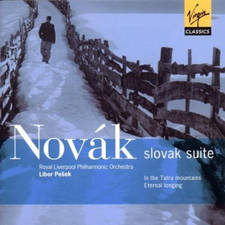The Full Works Concert - Tuesday 30 July 2013: Magic and Mystery
Composers down the years have been inspired by all things magical. Tonight, Jane Jones grabs her wand and cauldron, and conjures up some musical sorcery.
Tonight's magical concert opens with Paul Dukas' The Sorcerer’s Apprentice - a piece immortalised by the on-screen antics of one Mickey Mouse replete with pointed wizard's hat. The original musical work was a huge hit for Dukas which surprised the composer as he intended it as a satirical piece and quite a diversion from his usually more serious works. The brilliantly descriptive music vividly describes Goethe's story of an apprentice magician who tries out some spells during his master’s absence with disastrous results.
Johann Nepomuk Hummel's ballet The Magic Castle was never published in the composer's lifetime. It lasts only 20 minutes which, along with its magical subject matter, suggests that it may have been a ballet for children.
Frederick Corder was an energetic and respected figure of the late Victorian musical scene. His concert overture Prospero demonstrates Corder's ardent devotion to the Liszt/Wagner school of composition. There are glimpses of the magical mysterious patriarch from Shakespeare's The Tempest - but the work is more of a tone poem than a graphic depiction of Prospero. The piece was a big success in Corder's day and was frequently performed, notably by the conductor Sir Henry Wood.
Kenji Bunch has emerged as one of the most prolific American composers of his generation. His compositions are witty, exuberant, lyrical and loved by audiences, performers, and critics alike. Tonight we hear Magic Hour performed by the Ahn Trio.
The overture to The Magic Harp shows off the skills of the Danish composer Friedrich Kuhlau (1786-1832) who was clearly influenced by Mozart and whose music is often reminiscent of Weber. His second opera, The Magic Harp was wrapped in scandal. It was thought, wrongly, that the libretto had been stolen from a German piece.
Liszt's Totentanz - Dance of the Dead - is based on the Gregorian plainchant melody Dies Irae as well as for its daring stylistic innovations. Liszt was obsessed with death, with religion, and with heaven and hell. The composer reportedly frequented Parisian hospitals and asylums, and even went down into prison dungeons in order to see those condemned to death.
The Noonday Witch by Dvořák begins with a mother warning her son that if he does not behave she will summon the Noonday Witch to take him away. He does not behave, and the witch arrives at the stroke of noon much to the mother's shock.
Manuel de Falla's ballet El amor brujo is the story of a young Andalusian gypsy girl called Candela. Candela falls in love with a man called Carmelo, after her unfaithful husband, whom she had been forced to marry, had died. The dead husband's ghost returns to haunt Candela and Carmelo. To rid them of the ghost, all the gypsies make a large circle around their campfire at midnight. In this circle Candela performs the Ritual Fire Dance. This causes the ghost to appear, with whom she dances. As they whirl around faster and faster, the magic of the fire dance causes the ghost to be drawn into the fire, making it vanish forever.
Paul Dukas: The Sorcerer’s Apprentice
Leonard Slatkin conducts the National Orchestra of France
Johann Nepomuk Hummel: The Magic Castle: Ballet Suite
Howard Shelley conducts the London Mozart Players
Frederic Corder: Prospero Overture
David Lloyd-Jones conducts the English Northern Philharmonia
Kenji Bunch: Magic Hour
Ahn Trio
Friedrich Kuhlau: The Magic Island – Overture
Michael Schonwandt conducts the Danish National Radio Symphony Orchestra
Franz Liszt: Totentanz (‘Dance of the Dead’)
Piano: Eldar Nebolsin
Vasily Petrenko conducts the Royal Liverpool Philharmonic Orchestra
Antonin Dvorak: The Noonday Witch
Simon Rattle conducts the Berlin Philharmonic Orchestra
Manuel de Falla: El Amor Brujo (‘Love Bewitched’)
Mezzo-soprano: Esperanza Fernandez
Rafael Fruhbeck de Burgos conducts the National Orchestra of Spain













